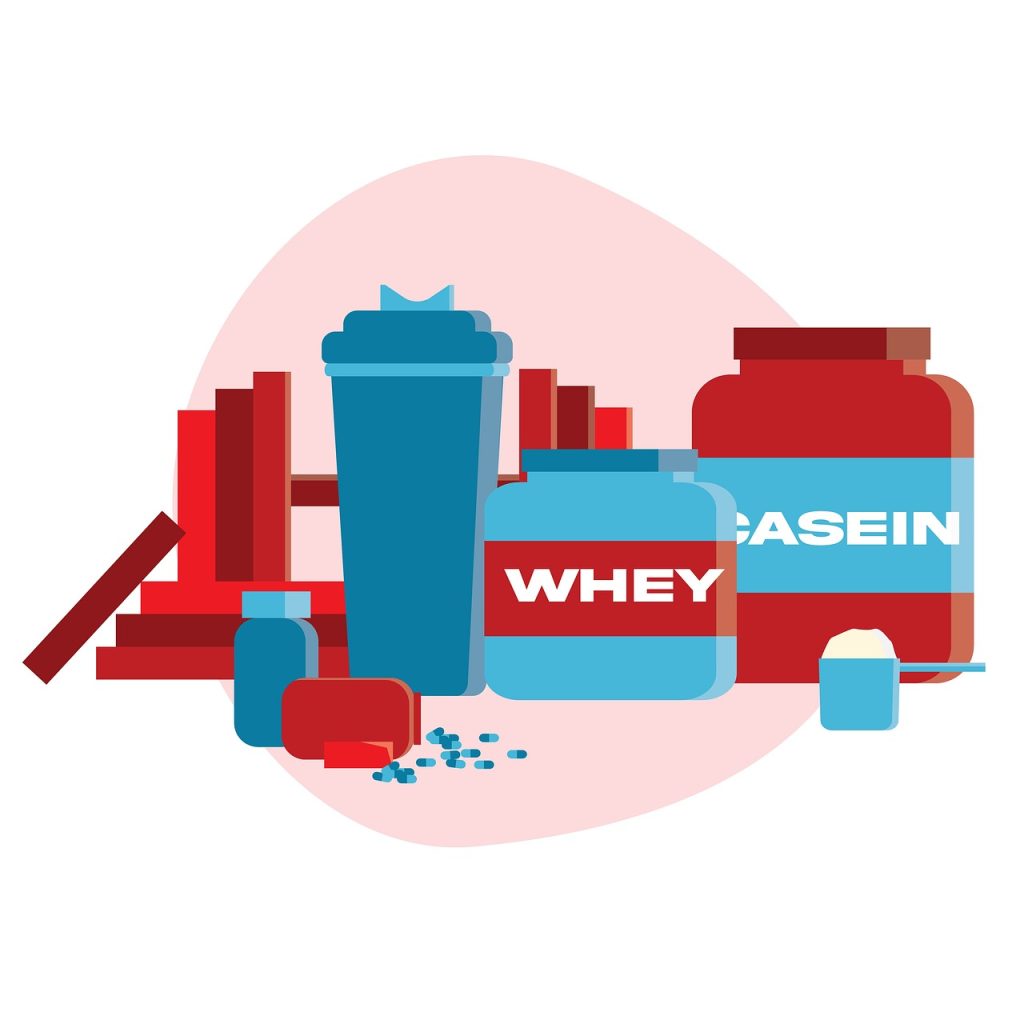Together with creatine, whey protein is one of the most sold dietary supplements in the fitness industry. This is not surprising since both can be very valuable when it comes to achieving athletic performance. While creatine can help increase your energy levels in the muscles and train heavier, whey protein plays an important role in repairing muscle damage and promoting muscle growth. Below you will read more about the origin of protein shakes and the role of whey protein in this.
What is whey
Perhaps one of the largest by-products remaining when producing cheese is whey, or “wei” in Dutch. Before we delve into what whey exactly is and what benefits it can have for you as an athlete, let’s briefly explain the production of cheese.
Cheese is made from milk, often from cows, but also from goats or sheep. This milk contains proteins, about 4 percent. The milk is often pasteurized before rennet and starter cultures are added, but pasteurization is not necessary. Rennet is a complex of digestive enzymes found in the stomach of every mammal. This is often extracted from the stomach of young calves. This rennet causes the milk to coagulate into a solid gel called curd. Coagulation has a protein-splitting function, after which often the casein and whey protein are separated. These casein and whey are purified and dried and are then called casein protein powder or whey protein powder.
Whey Protein Benefits
Now that you know how whey protein and casein protein are obtained, it is important to look at the benefits these can have for you as a strength athlete. Whey is highly appreciated in the fitness world for several reasons. For instance, whey protein has a very good amino acid profile due to a good balance of different amino acids. There are various sources of proteins and each source can have its own amino acid profile. Amino acids play an essential role in muscle building, and especially the BCAAs, the branched-chain amino acids, are extremely valuable in preventing muscle breakdown and promoting muscle growth.
In addition to this good balance of different amino acids, the biological value is a second reason why whey is so highly valued. Whey protein concentrate contains 29% to 89% protein. This is even higher with whey protein isolate, sometimes exceeding 90 percent. The biological value represents the ratio of essential amino acids. These are the amino acids that the body cannot produce itself and which we therefore depend on from our foods. This is higher with whey concentrate than with plant proteins. The biological value of whey concentrate is even higher at 104% than that of a chicken egg, 96%. And with isolate, this can even increase to 150 percent.
Finally, the third reason why whey is so highly valued is the speed of absorption. The amino acids from whey are absorbed very quickly and made available to the muscles. The faster this absorption into the bloodstream and availability to the muscles, the faster protein synthesis can start there. With casein, the amino acids are absorbed more slowly than with whey, and partly for this reason, casein is also called the slow protein.
If you want to know when to take whey or casein, also read our article with the same title: Whey or Casein.
How Whey Protein Works
When you have had an intensive strength training workout, you slightly damage the muscles. Through this deliberate muscle damage, they recover to a larger size than before. This overcompensating response of the body is intended to be able to cope with this effort the next time the body is exposed to it. This is also referred to as hypertrophy.
For the repair of muscle damage and for promoting this muscle growth through hypertrophy, the body needs amino acids, which can be obtained from whey protein. The protein ensures the recovery of the muscles, but also of bones, hair, nails, brain tissue, and more. In addition to having sufficient protein available, the body also needs enough energy in the form of carbohydrates. If this energy is not available, the body can break down the accumulated protein and use it as energy. Considering that the brain is the biggest consumer of energy in the human body, you can understand that the body prioritizes it over the muscles. So, besides enough proteins, sufficient carbohydrates are also needed for optimal functioning of whey protein for muscle growth.
Why Whey Protein Shakes
The importance of sufficient proteins and amino acids may be clear. You cannot build your body when it does not have enough nutrients and building materials. It is not necessary to resort to protein shakes for this protein requirement. After all, these are dietary supplements: a supplement to your daily diet. These are not miracle cures and certainly not foods. If you want to use protein shakes out of convenience or necessity, that is fine and justifiable, but it can never replace a well-balanced diet where you get your proteins and amino acids from your food.
Conclusion
Whey, or whey, is a by-product that arises in the production of cheese. By purifying and drying the whey and casein, the well-known protein powder is created. The role of these proteins is particularly important due to the amino acids they consist of. These amino acids play an important role in muscle growth and in preventing muscle breakdown. Protein shakes, both whey and casein, can be used for convenience and necessity, but should not be considered as a replacement for regular food.

